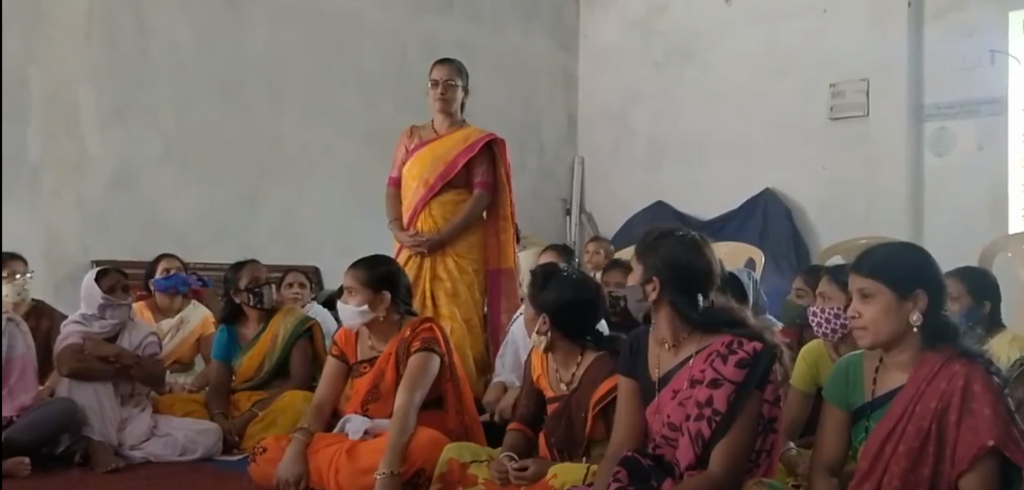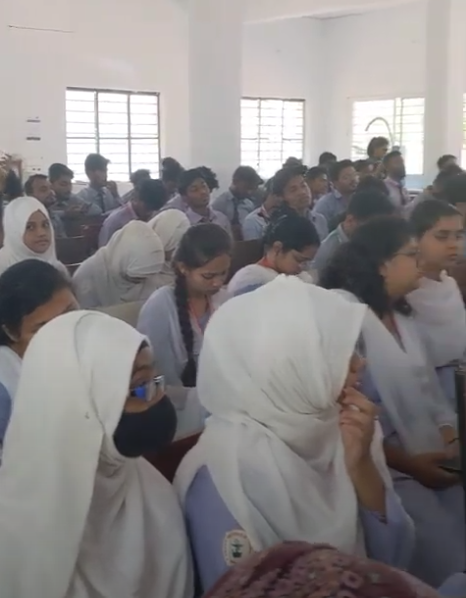“How does Facebook know about me, enough to show me ads about my private needs?”
Doing workshops amongst students and young people meant dealing with a lot of their questions, thoughts and feedback. In an earlier post, I described my methodology in training over 1000 individuals in the central Indian region of Vidarbha. Especially in Nagpur. I will link these at the end of the post. Today I want to focus more on –
What were the reactions and questions from participants?
Before that, you can read about the structure & course-content of my workshop here in case you missed one of my earlier posts. The reactions or comments from this pool of 1000 I trained, I believe, can be insightful to you because it gives one a chance to know what is going on in the minds of young people from underprivileged contexts. And how recent technology use and social media interactions impact them.
How/where I collected questions: Throughout the session, of course, questions would be welcome. At the end of each 2-hour discussion, I would usually circulate a feedback form, which could be filled up and returned to me anonymously. The anonymity being important because it improved the probability of truths being spoken out, without worries of repercussions or being identified or singled out in any possible way. Of asking questions without the fear of being judged.
The questions wouldn’t stop! It would often spill over. People stayed back after a session informally. And of course some questions would spill over into the feedback forms as well.
I’ve selected three common questions I encountered.
1. “How does Facebook know about and show me ads about my private needs?”
I wanted to buy a bike, I only just thought of it. All of a sudden, I start seeing bike ads all through my Facebook feed. How does Facebook know about it already?
Asked me a 17-year old student. On hearing his narration, others present often chimed in with similar stories from their own observations.
2. “I don’t want my child being recommended any adult content on YouTube.”
He uses my device all the time. Can you tell me how this can be prevented?” asked a 30-year old mother, worried about her 8 year old son who attends online lessons using her mobile device ever since the pandemic.

The compulsory online education for the vast majority of low-income households meant sharing of a mobile device across multiple people living under the same roof. I noticed how this sometimes led to the accidental discovery of embarrassing or unfamiliar things about one another. When it came to women or young girls, there would be more consequences depending on what had been found out. Had she communicated with someone she didn’t have the approvals to speak to? Had she shared a picture or photo that crossed a line? Those kind.
“You showed us WhatsApp settings. But what about other payment and banking apps?”
The moment people realised that tweaking a few settings could make their online presence safer, there would usually be a demand to learn about other apps. There would also be questions about Google privacy. How much does Google know about me? Is there a way I can find out? Can you show us this? Participants would request me for tutorials on how to secure different mobile apps – “Apne Facebook ka setting explain nahi kiya” (“You did not explain Facebook settings.”)
Other comments were on fake news, cloud storage and wanting to do more
The above three questions were quite similar to one another in some respects. There were other categories of comments. Fake news was a concern for many. “How can we tell the truth from false forwards?” asked me the middle-aged participants.
And to our topics on cloud infrastructure, another feedback form entry read – “I learned about server farm today through your session, which I didn’t know anything about. In future I will consider how my data – my photos and videos – are stored by companies and third parties. And I will now remember that cloud is actually something stored in a PHYSICAL data centre in actual storage! Thank you very much. “
Many in the feedback forms wrote that they were interested in volunteering with their time and skills to spread awareness on online safety.
Addiction to online games
Some confessed to facing more problems.
Actually didi I’m also addicted with pubg (a popular online game) Meri ek friend jo mere sath game khelti thi, uska ek friend bana, jisse dosti achi hone ke baad usne us ladke ko apna number or photo dedi but us ladke ne meri friend ko baadme paise manga ki agr paise nahi donge to mai tumari pic edit karke koi gande pic me chipkake apk jo Facebook frnd hai usko bhej dunga or viral kardunga… My frnd was in too much stress about that..”
anonymously submitted feedback from a participant
(Translation: Actually I’m also addicted with pubg game. A friend who used to play with me, she made friends with a boy. The boy later started demanding money from her. He said to her that if you don’t give me money, I’ll edit your photos to something lewd and make it viral to all your Facebook and other contacts. My friend was very stressed about it.)

This conversation neither starts nor ends here.
Things you and I can do
Plenty but for starters: talk more about what’s happening. With our friends, trusted ones in safe spaces or publicly – wherever comfortable.
There is a huge disparity in awareness levels across different income groups & sections of society. Naturally the impact of these problems is adverse depending on one’s personal situation and level of access to counselling or advise.
Inequality has exacerbated the worst effects on those left behind.
Thanks for reading! If you’re here for the first time, do subscribe to receive full posts in future. And do share this with your friends and networks.

